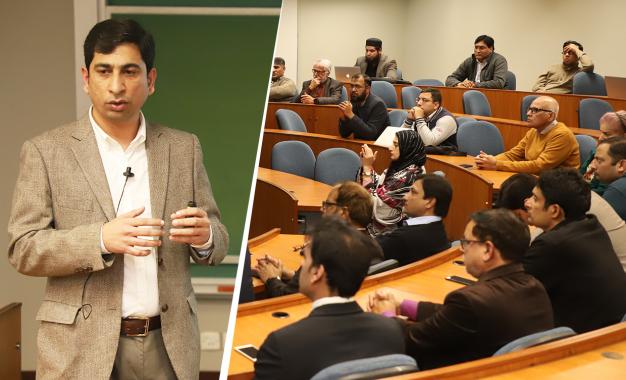
The Suleman Dawood School of Business (SDSB) hosted a session, 'Antecedents and Consequences of Supplier Social Compliance in Pakistan's Apparel Exporting Industry,' led by Dr. Muhammad Shakeel Sadiq Jajja, Assistant Professor SDSB. The session comprised of a presentation and a conversation on sharing the research approach and findings with managers from the relevant industries and getting their feedback on the issue at hand.
In global supply chain management, the issue of supplier social compliance has become prominent as a consequence of the shifting of manufacturing to developing countries. However, comprehensive frameworks explaining antecedents (drivers) and consequences (outcomes) of supplier social compliance are lacking. The research seeks to identify these factors using data from 164 apparel manufacturers and exporters of Pakistan.
First, the research identifies institutional and cultural drivers of supplier social compliance; the findings suggest that institutional pressures from various stakeholders can increase it. In addition, the partial evidence for moderation effect of organisational culture indicates that alignment of supplier’s internal value system with social compliance pressures plays an important role in determining how the supplier responds to the call for social compliance initiatives.
Second, it examines the role of supplier social compliance management systems such as SA8000 and supplier code of conduct in affecting the supplier’s organisational performance. The results of the research indicate that these standards have a positive impact on organisational citizenship behaviour that in turn has a positive impact on operational and quality performance through the impact of private standards on organisational citizenship received weak support.
The session was highly interactive and the audience was impressed by Dr. Jajja's explorations.








